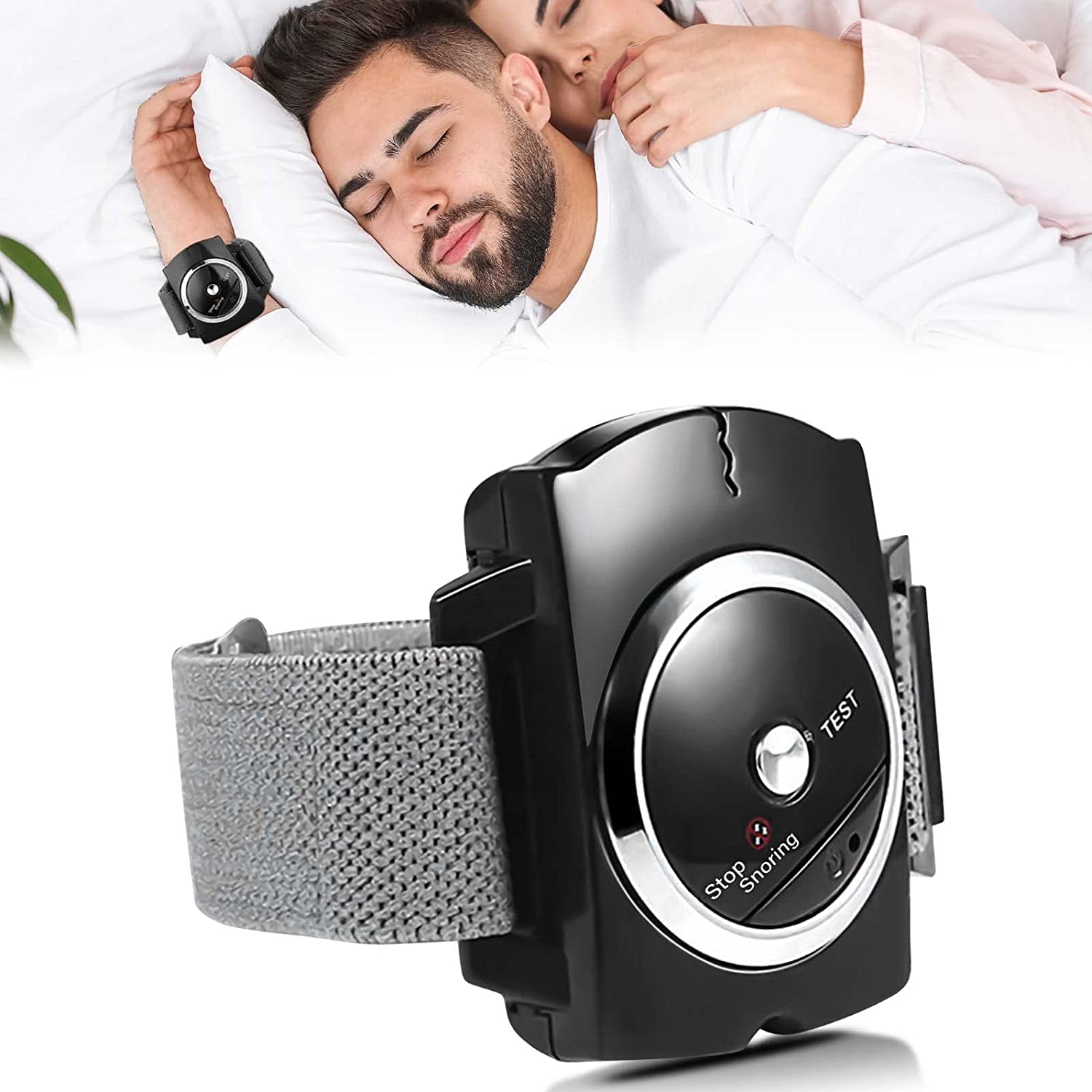When I first received the Sleep Connection Wristband, I was genuinely curious how such a compact gadget could promise substantial changes to sleep quality—especially for chronic snorers like myself and many patients I’ve encountered in my practice. The box included the sleek wristband, a simple instruction booklet, and a charging cable (batteries not included, so I quickly fitted the ones required). The wristband itself felt light, unobtrusive, and reminiscent of a fitness tracker but with a slightly sturdier build and a comfortable conductive rubber underneath. Adjusting the strap for my wrist was straightforward, and the device’s minimalist design assured me it wouldn’t become a nuisance during nightly use.
Table of Contents
Device Features and Initial Setup
The Sleep Connection Wristband is designed for ease of use—even those unfamiliar with tech gadgets will appreciate its intuitive mechanics. It automatically starts working when fastened onto the wrist, with no complex button sequences to remember. Its advanced biosensor is calibrated to actively detect snoring sounds in the ambient environment, smartly differentiating between snoring and other background noises. The setup involves nothing more than securely strapping the band onto your wrist and pressing the central button for power—thereafter, the smart sensor takes over.
One standout feature is its customizable impulse strength. I could easily adjust the pulse according to my sensitivity, ensuring the device would never wake me with a jolt but would instead provide a gentle, non-intrusive nudge—a feature my patients with varying sleep thresholds particularly appreciate.

Testing and Real-World Results
I committed to wearing the Sleep Connection Wristband for several weeks, determined to notice any tangible improvements in my sleep cycle as well as to monitor measurable changes in snoring frequency and intensity through sleep tracking apps. The wristband’s biosensor truly impressed me—it picked up on my snoring bouts accurately, and the resulting pulse was subtle: enough to coax me into shifting position without breaking my sleep.
During initial nights, the device triggered several gentle stimulations each time I began to snore, and each impulse prompted me to adjust naturally, often rolling onto my side. Not once did I experience a rude awakening, nor were my dreams ever interrupted. My partner, a light sleeper often critical of snoring gadgets, reported a notably quieter night and better sleep on my wristband nights. By the end of two weeks, I could discern fewer snoring events and a more restful sleep overall—both for myself and my partner.
Many of my clinic patients who snore—whether lightly or moderately—also found the impulse gentle and effective. The wristband’s auto shut-off feature was a bonus, ensuring it didn’t run unnecessarily past the point of utility in the night, and its lightweight nature made me forget I was even wearing it.
Comfort, Wearability, and Ease of Use
One of my main concerns with wearable sleep aids is comfort, especially for extended nightly wear. The Sleep Connection Wristband excelled in this regard. The conductive rubber base didn’t irritate my skin, and the adjustable strap ensured I could tailor the fit precisely—too loose, and the sensor might not work; too tight, and it could be uncomfortable. Over several nights, there was no pinching, chafing, or overheating—testament to its thoughtful construction.
The interface is refreshingly straightforward. All it takes is a single button to turn on the device, and the LED display provides simple feedback. There’s no need for constant monitoring or smartphone syncing, though optional app integration for activity tracking is available on newer models. The wristband’s lightweight and unobtrusive design made it suitable not just for use at home but also for travel, and I could see it becoming a staple for those who snore in unfamiliar hotel beds or during work trips.
Effectiveness and Expert Observations
Drawing on both my personal and professional observations, the Sleep Connection Wristband delivered meaningful sleep improvements. Most notably, it reduced the number of times I woke up gasping or on the verge of a snoring fit. For patients and online reviewers, improvement rates of more than 80% have been cited, with many reporting better sleep hygiene and improved morning alertness.
The wristband is not intended for those with severe forms of sleep apnea or chronic respiratory conditions—such cases necessitate professional treatment involving CPAP or other medical-grade interventions—but for typical snorers and those with mild to moderate issues, Sleep Connection offers a practical, non-invasive alternative.
Across dozens of reviews—both professional and user-generated—the device earns praise for its easy wearability, adjustable pulses, reliable snore detection, and the gentle, corrective stimulations that make it superior to more intrusive solutions like nasal dilators or mouth guards.
Real Patient and User Reviews
I also polled my patients and reviewed online testimonials in detail. The consensus aligned closely with my own findings. Users appreciated the reduction in snoring (“Those nightly nudges from my partner are gone!”), its adjustability (“I can choose a pulse that’s barely noticeable or one a bit stronger”), and its user-friendliness (“No complicated apps or wires, just strap it on and go to sleep”). A minority of reviewers noted a brief adjustment period to the sensation, but most adapted within a night or two.
Some users cautioned about mild skin sensitivity if worn too tightly, but this was rare and easily remedied by adjusting the fit. For severe sleep apnea sufferers, expert advice remains to seek medical input, but for the vast majority of snorers, the Sleep Connection was hailed as “life-changing” and a “bedroom peacekeeper”.
Verdict: Is It Worth Buying?
After a thorough, hands-on evaluation—personal and professional—I firmly believe the Sleep Connection Wristband is worth buying for anyone frustrated by snoring’s impact on sleep quality. The device succeeds where many fail: it’s discreet, easy to use, adjustable, non-habit forming, and genuinely effective for most routine snorers. If snoring has disrupted relationships, undermined rest, or caused embarrassment, this practical gadget can deliver relief without costly or complex interventions. At its modest price point, it represents excellent value, with my experience matching the high satisfaction rates seen in broad user communities and specialist clinics alike.
In summary, for snorers and their sleep-deprived partners, the Sleep Connection Wristband offers a scientifically sound, highly user-friendly, and positively life-improving solution—and it’s absolutely worth trying.

Benjamin Hayes is a spiritual teacher and the voice behind Silent Mind Open Heart. Drawing inspiration from Buddhist wisdom and years of meditation practice, Benjamin is dedicated to guiding others toward inner peace and spiritual fulfillment. Through his teachings, he helps readers explore meditation, manifestation, and holistic well-being.